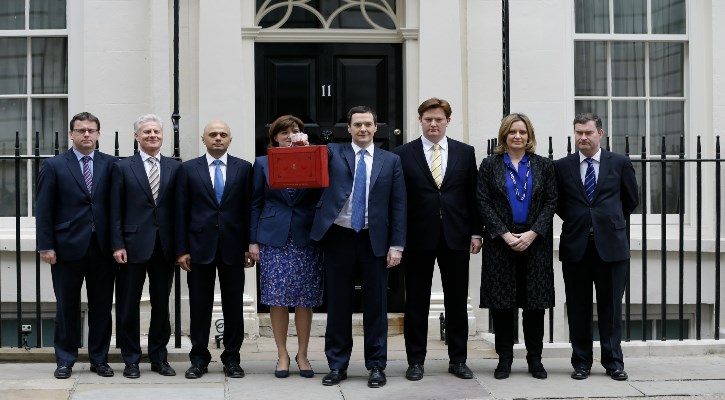 Conspicuous by its absence in my last column was mention of the Financial Conduct Authority (FCA). I was discussing the issue of investor vulnerability, but wanted to cover off regulation in a separate column.
Conspicuous by its absence in my last column was mention of the Financial Conduct Authority (FCA). I was discussing the issue of investor vulnerability, but wanted to cover off regulation in a separate column.
What is the FCA? Well, it is a body of lawyers, policy people and supervisory experts. It is in charge of ensuring the UK businesses that handle your money behave themselves, and has specific powers granted to it by parliament to ban individuals from working in financial services if it sees egregious wrongdoing.
For instance, if you are sold a fund, mini-bond, pension, or service by a business without the correct authorisations or compliance infrastructure, it can step in.
Big Mandate and a Budget to Match
This is not a small organisation. It employs 4,000 people, and has an annual budget of around £632 million, a figure that has on more than one occasion brought a tear to the eye (and not in a good way) of the finance firms that fund its existence via industry levies. Plans to expand its current footprints in London and Edinburgh to create hubs in Leeds, Belfast and Cardiff could see that figure rise.
Nor is it voiceless. Of all the bodies involved in keeping you safe in financial services, its ties to government are arguably the closest.
Back in 2016 George Osborne (then chancellor) supposedly handed chief executive Martin Wheatley a vote of no confidence for his shoot-first-and-ask-questions-later approach to banking misconduct. It was not the first time relationships have been strained.
In 2014, Osborne foisted a complete overhaul of pensions policy on the regulator. The pension freedoms, as they were known, won plaudits at the time for their liberal blue-sky thinking. The reality for the FCA was much different. Finding ways to regulate what was essentially a huge commercial opportunity for pension providers was a minefield. It has admitted as much too.
Last year, its CEO, Nikhil Rathi, a former head of the London Stock Exchange, raised eyebrows when he said in a Treasury Select Committee meeting that he hoped to avoid such instances of on-the-hoof policy implementation. For a first appearance in front of MPs, it was quite the shot across the bow.
For good reason too. The UK has a rump of mass-affluent baby boomers. But as they attempt to plan and enjoy their retirements, they are also vulnerable: to misinformation, scams, advertising, and bad advice, not to mention life events like divorce or illness, which add pressure to the decision-making process.
You would think in this environment that a regulator would come into its own. But the view that the FCA is struggling to keep up with its caseload is sadly not controversial at all.
In office, one of Osborne’s many catchphrases was “fixing the roof while the sun is shining”. For its part, the FCA has had to fix the roof while digging up its own foundations. A storm then arrived in the form of Brexit, which can only mean coronavirus must have felt like an earthquake.
A Crossroads Approaches
To that end, I worry about the regulator, and about what might be next for it.
In no particular order, the Woodford debacle, London Capital & Finance, Blackmore’s bond bust-up, the Connaught issue, and a regional pension transfer mis-selling scandal in the exposed steel towns of Wales, have all contributed to a sense that the regulator is struggling.
Cynically, I wonder just what the tipping point will be for our largely libertarian MPs on the government benches. It would not surprise me if they concluded that, if we must have regulator, it needs to be a lot better than it currently is. What “better” looks like is not clear. Privately, I'm not sure I trust our parliamentarians with the task of deciding.
So, a prediction, and then some speculation. The FCA in its current guise may unfortunately be gone within three years, overwhelmed by policy imperatives, but ultimately transformed by the very people who overwhelmed it in the first place: MPs, whose well-intentioned but poorly-implemented reforms created a shambles of conflicting philosophical messages about freedom and liability.
Blowing The Whistle
If you are a comfortable and confident DIY investor, this may all be immaterial to you. You may have high regard for your good sense, and an ability to understand and deal in complex financial instruments.
I saw an example of this in our weekly “investor views” column, where private investor Steve decided to leave his final salary pensions where they were, just as the regulator itself says is appropriate in the majority of cases.
Other investors, however, may not be so wise. And without a nimble, tech-savvy, and proportionately-funded watchdog to provide a framework in which we can all make good financial decisions, we all suffer.
A final opinion: the regulator could help itself by doing two things. Firstly, it might align itself with what most people regard as whistleblowing, rather than the current legal definition (which says you can only be a whistleblower if you are an employee at the organisation subject to the complaint). To do that, it should work with sensible MPs to build the case for reform on its own terms, and encourage members of the public to speak out.
Nevertheless, there is no point having perfect whistleblowing policy if bad behaviour by bad apples continues to proliferate. The ideal scenario is that whistleblowing policy is never needed. Nor is it any good having MPs supportive of reforming those rules, who then see a parliamentary majority (and Brexit) as an opportunity to rip up the rule book and deregulate. The two are simply incompatible with good investor outcomes.
If Nikhil Rathi has the guts to hint to MPs that his team did not appreciate naively liberal policies like the pension freedoms, then, it gives me confidence that the regulator might already be standing up to its masters more. But the clock may well already be ticking. Maybe it is time for the FCA itself to play whistleblower. You can guarantee there would be more Martin Wheatley-style firings as a result, but we would at least know which party was on which side, and be able to vote accordingly.
I’d welcome your thoughts on this topic as the future unfolds.
Email: Ollie.Smith@Morningstar.com









.jpg)

















